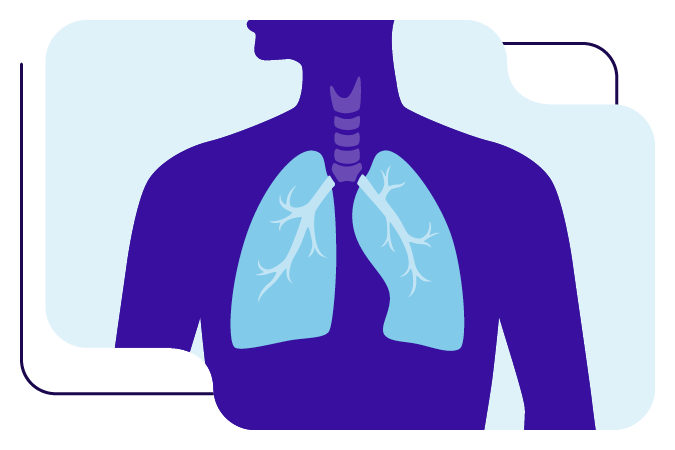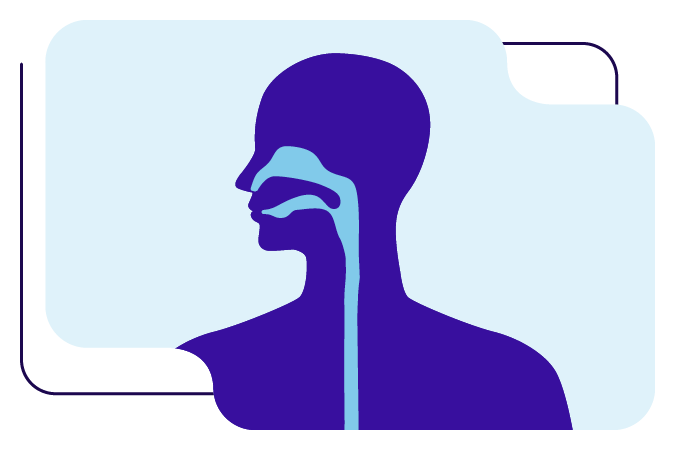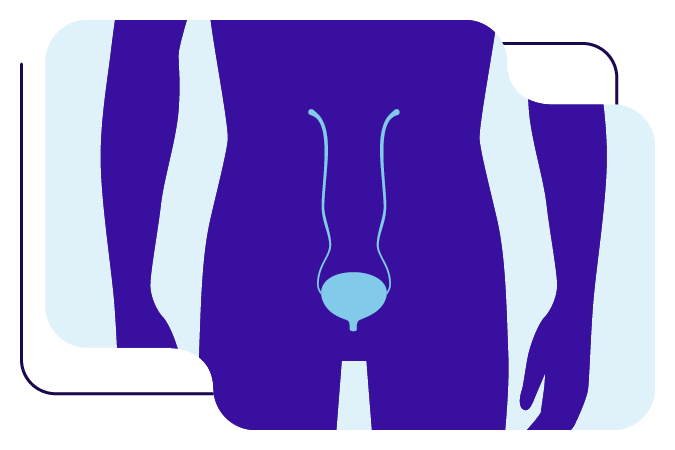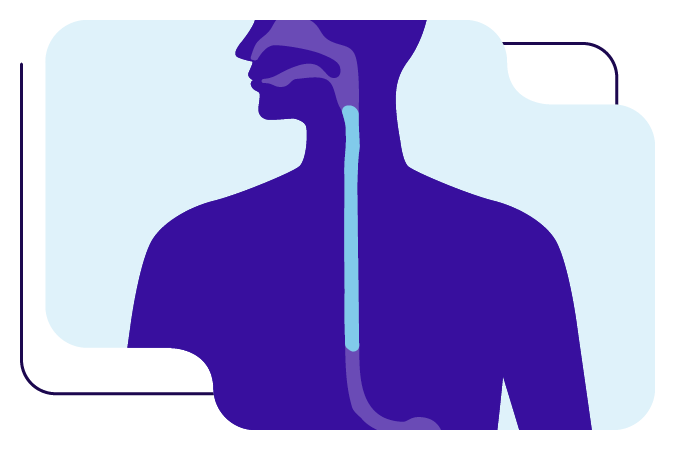Lung cancer
What is lung cancer? Find out how common it is, the causes, and expert advice on how to reduce your risk.

On this page
What is lung cancer?
Your lungs are organs in your respiratory system and sit in your chest. The lungs transfer oxygen into the blood when you breathe in and remove carbon dioxide from the blood when you breathe out.
Lung cancer can start in the windpipe (also known as the trachea), the bronchus (an airway that takes air from the windpipe into the lungs) or the tissue of the lungs themselves.
Smoking is the main cause of lung cancer.
How common is lung cancer?
Lung cancer is the 4th most common cancer in the UK (2021 data), and the most common in the world (2022 data).
Men
Lung cancer is the 3rd most common cancer in men in the UK, and the most common in men globally.
Women
Lung cancer is the 2nd most common cancer in women in the UK, and the 2nd most common in women globally.
| Region | Cases | Year |
|---|---|---|
| UK | 48,904 | 2021 |
| World | 2,480,675 | 2022 |
What are the symptoms of lung cancer?
Lung cancer does not usually cause noticeable symptoms until it has spread through the lungs or into other parts of the body. This means the outlook for lung cancer is not as good as for many other types of cancer.
Find more information on lung cancer symptoms on the NHS website.
What causes lung cancer?
As well as smoking, there are other things that affect your risk of lung cancer.
Evidence for what can cause lung cancer comes from large population studies (called epidemiology) and biological studies (where scientists look at cells in a laboratory).
If the risk factors below affect you, this doesn’t necessarily mean that you will develop lung cancer.
Smoking
More than 90% of lung cancer cases in men and more than 80% in women worldwide are caused by smoking tobacco. Passive smoking is also a cause of lung cancer.
But lung cancer can also develop in people who have never smoked.
Supplements
In current and former smokers, taking high-dose beta-carotene supplements increases the risk of lung cancer. This is why we recommend that you don’t take supplements for cancer prevention.
Arsenic
Drinking water containing arsenic increases the risk of lung cancer. Agricultural, mining and industrial practices can contaminate water with arsenic. Arsenic can also occur naturally in water.
The primary regions with high concentrations of arsenic in drinking water are large areas of Bangladesh, China and West Bengal (India).
Lung diseases
People with a history of emphysema, chronic bronchitis, tuberculosis or pneumonia have a higher risk of developing lung cancer. People with antibodies to Chlamydia pneumoniae, bacteria that can cause chest infections, also have a higher risk.
Work
People who work with asbestos, crystalline silica, radon, mixtures of polycyclic aromatic hydrocarbons, heavy metals or diesel fumes have a higher risk of lung cancer.
Pollution
A pollutant called particulate matter, which is in diesel and petrol exhaust fumes (and tobacco smoke), increases the risk of lung and other cancers.
Levels of particulate matter and other air pollutants are usually higher in cities, and vary according to traffic density and weather conditions.
The risk of cancer from air pollution is low in the UK, but much higher in other countries.
> Find out more about air pollution on the World Health Organization website
Indoor air can also be polluted, especially where wood and coal are burned for cooking and heating.
Other risk factors
Our Expert Panel of scientists has also looked at other things that may be linked with the risk of lung cancer. The evidence for the risk factors listed below is limited, and we do not recommend that you change your behaviour only on the basis of these risk factors:
- eating red meat or processed meat may increase the risk of lung cancer.
- drinking alcohol may increase the risk of lung cancer.
- being physically active may decrease the risk of lung cancer.
- eating food containing retinol, beta-carotene or carotenoids may decrease the risk of lung cancer.
- in people who’ve never smoked, eating food containing isoflavones (a compound found in plants, especially beans) may decrease the risk of lung cancer.
- in current smokers and former smokers, eating vegetables and fruit may decrease the risk of lung cancer.
- in current smokers, eating food containing vitamin C may decrease the risk of lung cancer.
For scientists: full references, pathogenesis and a summary of the mechanisms underpinning our findings on how to prevent lung cancer can be found in our 2018 lung cancer report.
Reduce your risk of lung cancer
Following our Cancer Prevention Recommendations reduces your risk of lung cancer and other cancers. If you have been diagnosed with cancer, following our Recommendations can reduce the risk of cancer returning.
Don’t smoke
By far the most important thing you can do to prevent lung cancer is to not smoke, or to give up smoking. If you do smoke, stopping smoking will reduce your risk.
In the UK, the NHS stop smoking service can help you quit.
Don’t take high dose beta-carotene supplements
High-dose beta carotene supplements can increase lung cancer risk in smokers and ex-smokers.
This is one of the reasons we recommend you do not rely on supplements for cancer prevention. It’s best to get all the nutrients you need from a healthy balanced diet rather than from supplements.
However, dietary supplements, in addition to varied diets, may sometimes be beneficial for specific population groups or for individuals.

Lung cancer survival
Our Living with cancer section can help if you are living with lung cancer.


